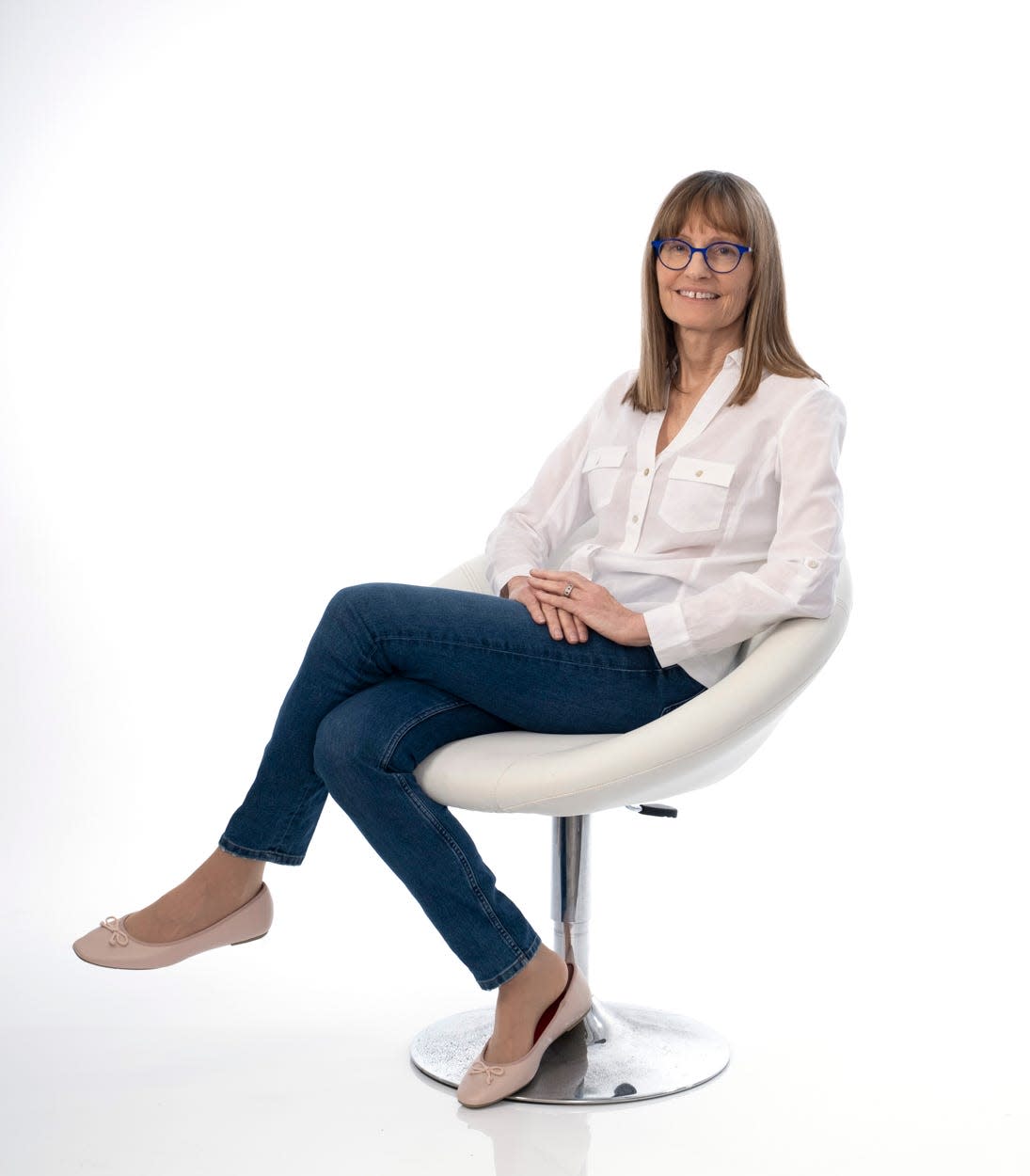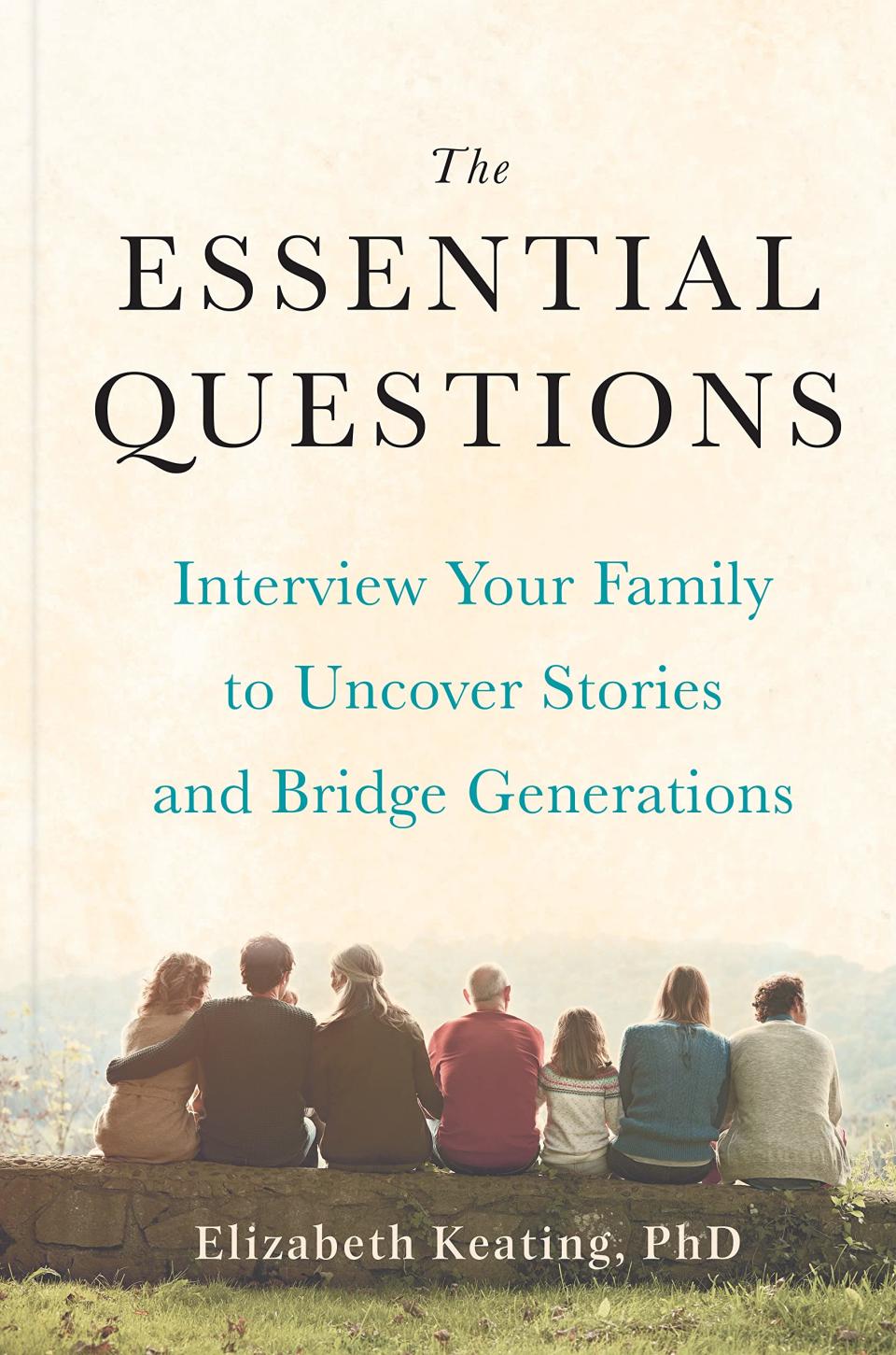'They lived through some pretty interesting decades': Ask your elders the right questions

Tired of Aunt Ida telling the same family story about pushing Uncle Elmer into the creek?
Maybe you get irritated with Grandpa Fleagle when he recites corny jokes that make him seem like a visitor from another dimension.
It's not their fault. Your relatives repeat the same family stories and jokes because people respond positively to them.
Yet they have experienced so much more during their lives. Things you don't hear about.
Elizabeth Keating, a professor of anthropology at the University of Texas, has just the plan to turn your relatives into fonts of profound personal history and intergenerational understanding.
She and her students have taken the precepts of anthropology and applied them to family storytelling. In this field, the social scientist is an outsider trying to crack the code of an unfamiliar culture by being both an insider and an outsider.
More'I'm a survivor': Austin WW2 vet Karl Schmitt has packed a lot into 100 years
Essentially, Keating casts you as the anthropologist trying — gently and respectfully — to get into the minds of your relatives.
Keating has written a swell how-to book — with lined pages for your scribbled notes — titled "The Essential Questions: Interview Your Family to Uncover Stories and Bridge Generations."
"I have been astonished to find that many people actually know little of the lives of their parents and grandparents, even though they lived through some pretty interesting decades," she writes. "Even when I asked my students, some of whom majored in history and excelled at it, about the history of their own families, they were in the dark."
Several of Keating's introductory tips apply to journalists as well: Prepare your questions in advance. Choose a room without distractions. Regulate the talk, but not too much. Explain your goals.
Never be the first person to end a silence. Use supportive nonverbal cues, such as nodding, smiling, managing eye contact. Keep the pace slow. Try to elicit concrete details. Be prepared for unexpected emotional intimacy.
Above all: Record the chat. Averse to transcribing, I use a notebook.
Keating divides her questions into "openings" — which I have marked No. 1 among sample questions below — and "follow-ups."
I'll use some of Keatings' chapter headings to introduce a selection of her questions — all of them come directly from her book. The book provides many more as well as follow-up stories.

Get some basic background
When were you born, and is there a story behind your name?
Where were you born?
Have you heard any stories about your birth?
How many brothers and sisters do/did you have, and where are you in the birth order?
What's your favorite pastime?
I've used similar questions interviewing a subject for a profile. They not only allow one to record basic data, they loosen up the interviewee. You start with the most familiar questions, then throw a curve ball.
Learning about where your elders grew up
Can you tell me about the home you grew up in?
How many bedrooms were there, and where did you sleep?
What was your favorite part of the house?
How was your home different from neighbors' homes?
How does the neighborhood look today, compared to then?
Oh boy, if I had these Keating questions in my hands 30 years ago, my newspaper profiles would have been so much richer. Be as concrete and sense-oriented as possible.
More:Shudde Fath, titan of Austin environmental causes, dies at age 106
Connecting with the history of your family
How did you perceive time when you were a child?
What was a typical day like for you as a child?
What did you do in the evening?
What was the first day of your first job like?
How do you plan your time differently now than when you were younger? Can you give some examples?
Establishing a perception of the passage of time is crucial, but hard to elicit. This chapter works through quite a few other questions, but the last one that I've listed deserves special attention.
The importance of everyday encounters
In conversations and interactions with people now, do you find things surprising or annoying because they aren't how they used to be?
How do you think everyday interactions have changed since you were young?
Can you remember any particular encounter with an older person from your childhood that is really memorable?
Can you tell me about a time when you were angry because someone treated you as insignificant?
Can you compare your interactions on social media today with how you interacted with people before social media.
Again, as the interviewer, you want to double down on the subject's memory and force them to get specific. As for the last question that I sampled here, most of my elders don't use social media, but it's a good question for digital non-natives like myself.
More:'Very old Texas': Musician Monte Warden traces his family back to before Austin was Waterloo
Rites of passage and how your elders were raised
How would you describe your parents' parenting style?
How is child-rearing different today than when you were a child?
Were your parents' rules of behavior the same for sons and daughters?
When did you feel the most independent as a child?
How did the world look to you as you entered it as an adult?
This is one of Keating's best chapters. These questions — and others in this section — will cause some considerable reflection for your subject. Maybe some unhappy memories.
The factors that made you who you are
Can you remember a moment when you first became conscious of you you are as a person and thought, 'This is who I am'? What characteristics did you consider central to your identity?
Has your identity changed over time, and if so, how has it changed?
Have you had to adapt your identity to living in another culture?
Do you ever feel oppressed because of your identity, and if so, can you give me an example?
Keating discovered my trick question! Early in an interview for a profile, I'll ask my subject: "What kind of kid were you?" To date, every single interviewee looked startled by the question, then thoughtfully answered. Keating's phrasing about identity is better than mine.
More:'They changed how the city was built': TxDOT keeps immigrant cemetery near I-35 intact
The ideas that shaped you and your family
How have your beliefs changed over the course of your lifetime, if they have?
Who were the people who most influenced your beliefs?
What social movements have impacted your thinking and beliefs?
Have your beliefs about race or ethnicity changed over time, if they have?
What's the belief you would most want your children to share with you?
As you can see, as her book progresses, Keating opens up the subject matter from concrete personal memories to look at society and culture. I've found this is a smart way to structure an interview, when possible.
More:The story of Scarbroughs, Austin's lost department store empire
The things you'll never forget
What is the strongest memory of your childhood?
What is your earliest memory?
What food triggers childhood memories?
What are some special anniversaries in your life?
Do you have a memory of what you were doing during a famous historical event?
This chapter starts to take us back full circle. These are often the memories that relatives will volunteer. Yet asked after all the previous questions, they might elicit fresh memories.
What do you wish people knew about you?
What do you wish people knew about you?
Were you especially good at something as a child or teenager?
If people knew you better, what would they see?
Is there anything that you would have liked to do, but feel like you've missed an opportunity?
Is there anything you would still like to do that you haven't done?
Journalists love this question. It usually catches the interview subject unawares. And it gives them the chance reveal something really interesting, something that all the previous questions did not unlock.
Why buy or borrow this book
In each chapter, Keating tells additional stories about how these questions led to richer knowledge of particular families.
Keating: "To me, parents and grandparents are part of a celebration of human creative expression that anthropologists have always written about."
My mother, who happens to be named Elizabeth Keating Barnes — no relation to the anthropologist — is sharp as a tack when it comes to what is going on around her in the present, but has lost much of her long-term memory. My four grandparents are long gone — one grandfather was born in the 1880s! — and we lost my father seven years ago.
I did ask all of them questions as a child, youth and young adult, but I fervently wish that "The Essential Questions" had landed in my lap some 50 years ago.
"A kind of genealogical amnesia eats holes in family histories," Keating writes, "as permanently as moths eat holes in the sweaters lovingly knit by our ancestors and grandmothers."
It's not just the personal stories, it's a knowledge of whole other worlds.
Keating quotes French novelist and playwright Simone Schwartz-Bart: "When an old person dies, a whole library disappears."
Michael Barnes writes about the people, places, culture and history of Austin and Texas. He can be reached at mbarnes@gannett.com. Subscribe to the free, weekly Think, Texas digital newsletter at statesman.com/newsletters, or at the newsletters page of your local USA Today Network newspaper.
This article originally appeared on Austin American-Statesman: UT professor has written a how-to book about building a family history

